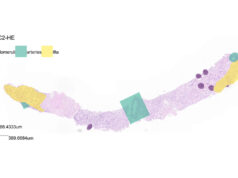 Hansa Biopharma has announced a recommendation by the National Institute for Health and Care Excellence (NICE) for its first-in-class treatment Idefirix (imlifidase) in the desensitisation of highly sensitised adult patients prior to receiving a kidney transplant from a deceased donor. A Hansa press release states that NICE considers Idefirix to be a clinically- and cost-effective treatment.
Hansa Biopharma has announced a recommendation by the National Institute for Health and Care Excellence (NICE) for its first-in-class treatment Idefirix (imlifidase) in the desensitisation of highly sensitised adult patients prior to receiving a kidney transplant from a deceased donor. A Hansa press release states that NICE considers Idefirix to be a clinically- and cost-effective treatment.
The recommendation marks an important milestone for patients in England, Wales and Northern Ireland, the release adds, as appropriate specialised transplant centres will be able to use Idefirix to enable transplantation for highly sensitised patients—who are currently highly unlikely to receive a lifesaving compatible kidney transplant.
The UK Medicines and Healthcare products Regulatory Agency (MHRA) also granted conditional approval of imlifidase from the European Commission in August 2020. The recent NICE recommendation builds upon this approval by considering the cost-effectiveness of Idefirix in addition to its clinical efficacy and the significant unmet need of the patient population it treats, the release continues.
Kidney transplant candidates are classified as highly sensitised if they have pre-formed antibodies against available donors known as human leukocyte antigens (HLAs). These antibodies can carry the risk of causing damage to the transplanted kidney and potentially lead to rejection. Risk factors for becoming highly sensitised include previous transplantation, blood transfusion and pregnancy. Finding a match for these patients can be particularly difficult, meaning they spend longer, on average, on transplant waiting lists, and therefore have an increased risk of dying while waiting for a suitable donor.
“A lack of effective desensitisation approaches has meant that, until now, people who are classed as highly sensitised kidney patients in England have struggled to find a donor match and have often had no alternative but to remain on long-term dialysis with a very poor quality of life,” said Adnan Sharif (University Hospitals Birmingham NHS Foundation Trust, Birmingham, UK), trustee at Kidney Research UK. “We welcome this decision, which will allow new opportunities for certain highly sensitised patients to qualify for a life-altering transplant and gain freedom from dialysis. Decision-making around who has access to the treatment is key—and the lifespan of the transplanted kidneys will need to be carefully monitored.”
“We are thrilled that NICE has recommended Idefirix as the first licensed therapy for highly sensitised kidney patients,” added Søren Tulstrup, Hansa president and CEO. “These patients have serious disease burden and unmet needs, and this recommendation is a significant milestone for them. For Hansa, this recommendation is also encouraging as we continue to pursue our vision: a world where patients with rare immunologic diseases can lead long and healthy lives.”
The release notes that Hansa will work with national health service commissioners in England, Wales and Northern Ireland to support the implementation of the service in line with NICE’s recommendations.












